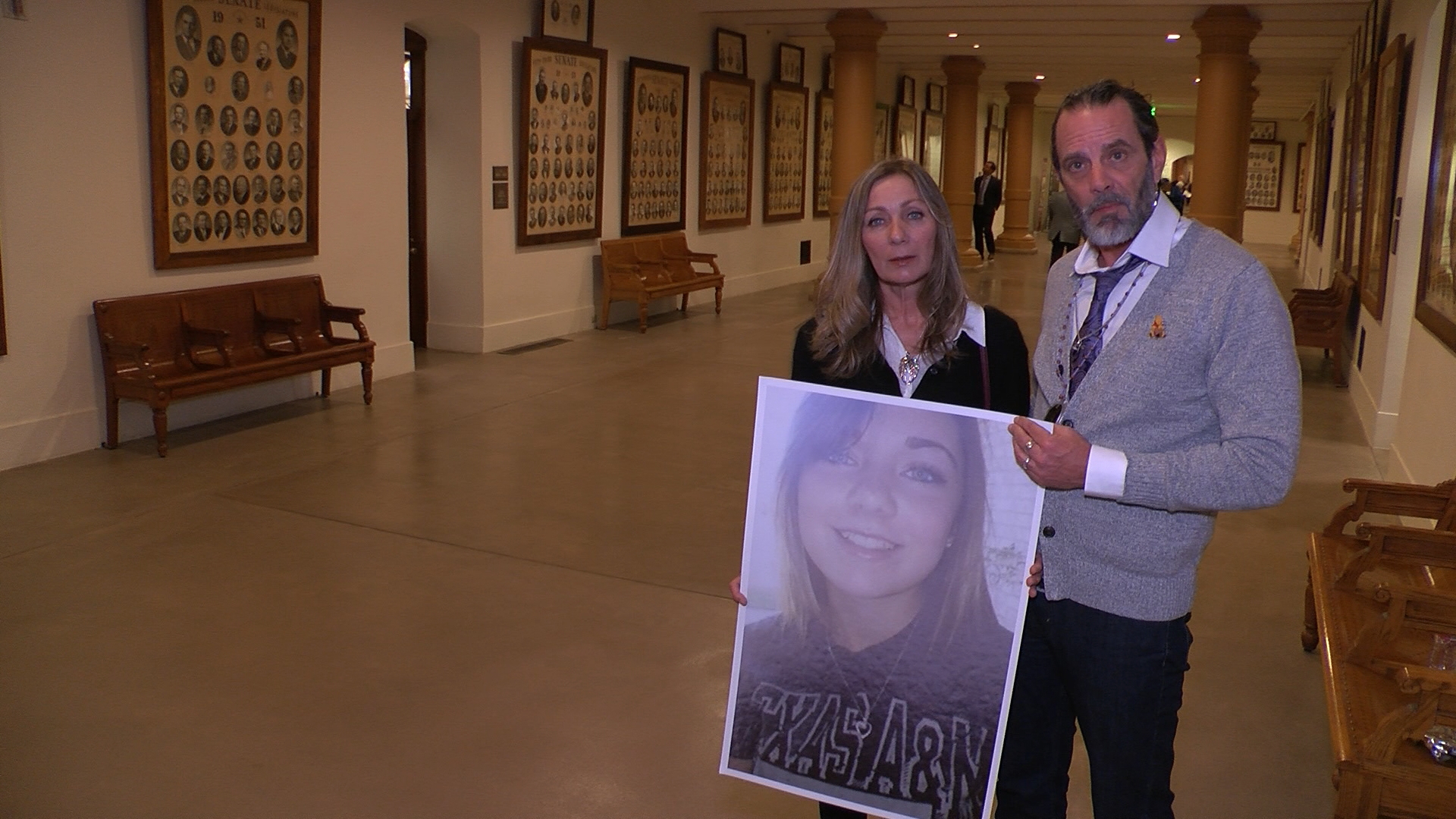This article has been updated with new comments.
AUSTIN (Nexstar) — Two years after 13-year-old Lauren Landavazo was shot and killed when walking home from school in 2016, 23-year-old Kody Lott was sentenced to life in prison for first-degree murder.
Lott was also sentenced to an additional 20 years for aggravated assault with a deadly weapon of Landavazo’s friend, Makayla Smith, from the same shooting.
Lott is eligible for parole after serving 30 years under Texas law. Lauren’s parents, Vern and Bianka Landavazo, said they believed the sentence wasn’t harsh enough.

“He got the maximum he could get,” Lauren’s father, Vern, said on Tuesday. “This is for future families — if somebody is ever in our shoes again — we’ve addressed a situation in the law that has a hole in it, we think.”
This session, lawmakers from Wichita Falls are trying to pass “Lauren’s Law” in her honor.
In Lauren’s case, prosecutors couldn’t seek a capital murder charge because she was 13. Both Rep. James Frank, R-Wichita Falls, and Sen. Pat Fallon, R-Prosper, have filed companion bills that would raise the age of a victim where the suspect could be prosecuted for capital murder from under age 10 to under the age of 15.
“That’s the least we can do for that family, but for every family, not only in Wichita County, not only in Senate District 30 but in the entire state of Texas,” Fallon said Tuesday.
In Texas, capital felonies are punishable by life without parole or death. For individuals who are under 18-years-old and commit a capital felony, their punishment options are life in prison or life in prison without parole.
Fallon’s statement of intent reads:
“The terrible murder of 13-year-old Lauren Landavazo in 2016 was obviously an unspeakable tragedy for her family, friends and the Wichita Falls community. While I am glad that her killer was brought to justice and handed the maximum sentence allowed under state law, this terrible act should be treated as the egregious crime that it is — capital murder — and thus eligible only for life without parole or the death penalty.”
Some attorneys who handle death penalty cases have said they’re working with lawmakers to ensure the legislation does not turn into an expansion of the death penalty.
“We believe in life without parole, we’re not death penalty advocates,” Vern said. “We wouldn’t feel bad if it went away, it’s not about the death penalty for us.”
On Monday, the House Criminal Jurisprudence Committee heard public testimony of Frank’s bill. It was left pending in that committee. The bill was originally slated to be considered by the Senate Criminal Justice Committee on Tuesday afternoon, but the Lavandazos said that hearing was rescheduled to Wednesday.
“I just think there are going to be future victims that are children – this is for them – and I know our daughter would approve,” Lauren’s mother, Bianka, said Tuesday.



























